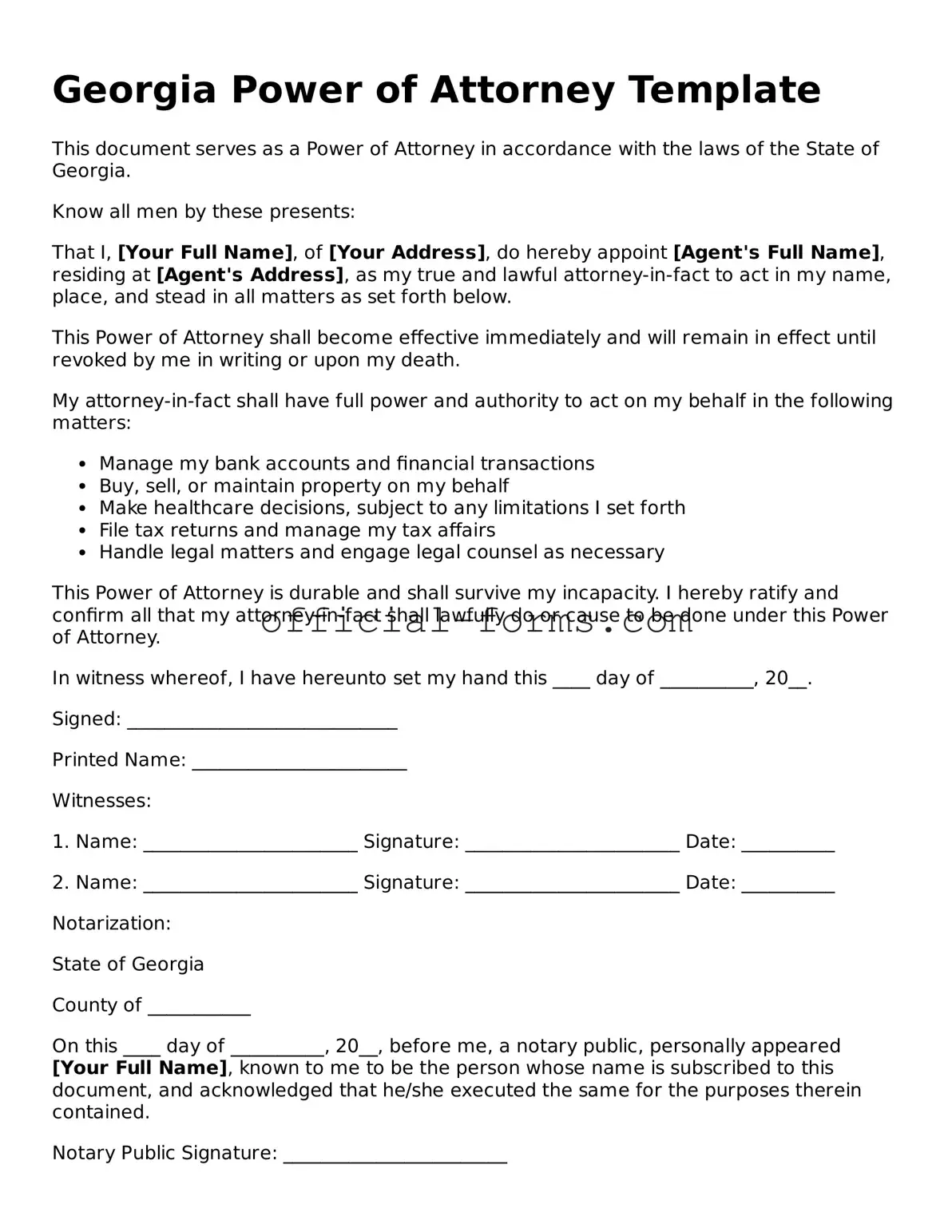Official Georgia Power of Attorney Document
The Georgia Power of Attorney form is a legal document that allows an individual, known as the principal, to appoint another person, referred to as the agent or attorney-in-fact, to make decisions on their behalf. This form can cover various matters, including financial transactions and healthcare decisions. Understanding how to properly execute and utilize this form is essential for ensuring that one's wishes are honored when they are unable to act for themselves.
Open My Power of Attorney Now

Official Georgia Power of Attorney Document
Open My Power of Attorney Now
Don’t leave your form incomplete
Finish Power of Attorney online quickly from start to download.
Open My Power of Attorney Now
or
➤ PDF
